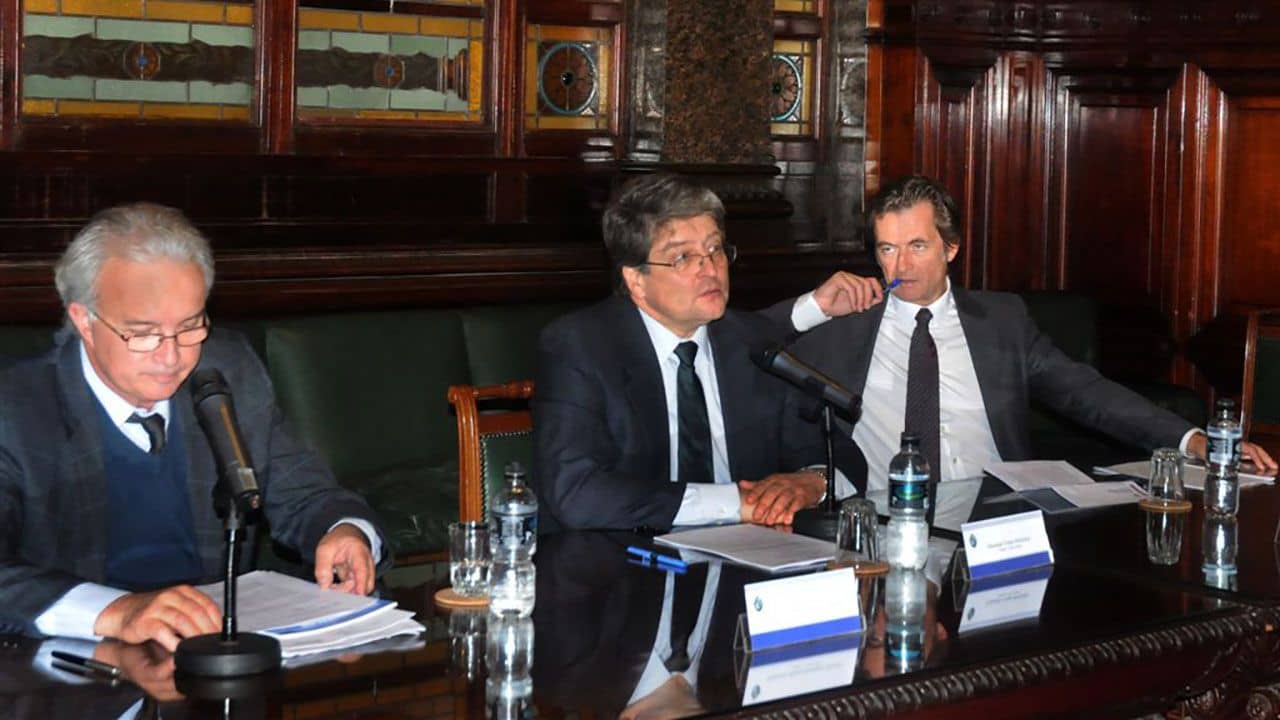
By David Donat Cattin
On 19 April 2020, Dr. Felipe Michelini passed away in his hometown Montevideo, Uruguay, due to complications following a tragic domestic accident that occurred on 7 April.
Felipe Michelini was an extraordinary human rights advocate, a leader in Uruguay and within the International Community, and an incredibly generous and enlightened scholar and politician, who will be missed by all those who had the privilege to work with him. Felipe’s unique leadership style sought to empower his colleagues and peers, embodying them with trust and optimism, which resulted in multiplied teams of motivated individuals whose efforts –more often than not– succeeded in reaching a common goal, always related to justice, accountability and truth.
I will try to honor Felipe’s immense legacy by recalling some of his contributions to the work of our organization, Parliamentarians for Global Action (PGA), of which he has been the most instrumental and credible voice over the last two decades in the critical campaign to put an end to impunity for the most serious crimes of international concern.
[1] See, for all, https://www.pgaction.org/news/activity-calendars/2015.html.
[3] The coherent and consistent commitment of Felipe to justice, truth and human rights was evidenced by his optimistic vision for the resolution of long terms problems, as evidenced in this editorial on 17 July 2017 (international justice day) in La Diaria: https://ladiaria.com.uy/articulo/2017/7/dia-de-la-justicia-internacional-tercamente-optimistas/.
[4] Statement by the Chair of the Board of Directors of the Trust Fund for Victims (TFV), Mr. Felipe Michelini, to the Assembly of States Parties to the Rome Statute of the ICC at its eighteenth session, 2 December 2019: https://asp.icc-cpi.int/iccdocs/asp_docs/ASP18/BDTFV.%20Chair%20statement-ASP18.pdf. See also 2018-2019 Report of the TFV at https://asp.icc-cpi.int/iccdocs/asp_docs/ASP18/ICC-ASP-18-14-ENG.pdf.
[5] Radiomundo, Felipe Michelini explica la causa italiana del Plan Cóndor y qué consecuencias puede traer, 10 July 2019: https://www.youtube.com/watch?v=4AWQDUuzHqc .
[6] See, for all, La Diaria, Felipe Michelini highlights the works of the Truth and Justice Commission and the challenges to the fight against impunity in Uruguay, 19 February 2020 https://ladiaria.com.uy/articulo/2020/2/felipe-michelini-ademas-de-seguir-con-la-busqueda-de-desaparecidos-el-proximo-gobierno-va-a-tener-que-cumplir-con-otras-obligaciones/. Inter alia, Felipe said: “Si quiere mirar para el costado, va a ser condenado otra vez” (“if you want to look elsewhere, you will be condemned again”).




